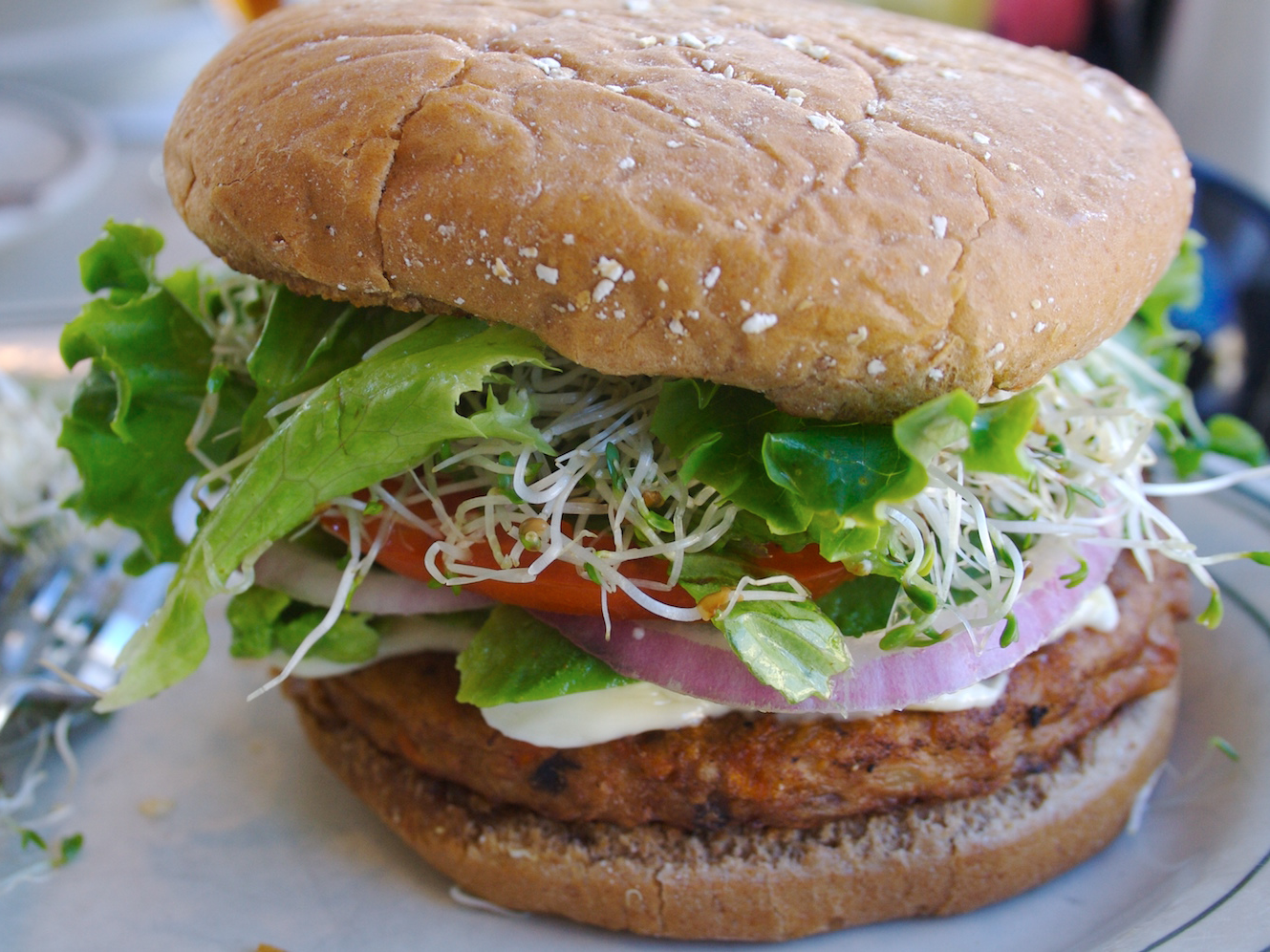- Plant based lifestyles are on the rise because of their health benefits.
- With the invention of meatless burger patties that are nearly identical to their meat counterparts, more people are giving vegetarian foods a try.
- Some vegetarian patties, though extremely popular, but may not be as nutritious as people believe.
- Insider spoke with Bonnie Taub-Dix, RDN, creator of BetterThanDieting.com and author of “Read It Before You Eat It – Taking You from Label to Table” to find out what people should know before assuming that meatless burgers are the healthiest choice.
It’s no secret that veganism, vegetarianism, and other meatless diets are on the rise. Ten years ago, Vegetarian Times estimated from a survey that 22 million Americans followed a meatless diet. In 2018, that number is likely even greater since more people today have taken an interest in plant-based lifestyles.A big reason why that’s happening is because cutting back on animal protein has been widely regarded as a positive dietary choice for many people. With several major athletes, celebrities, and fitness experts touting the health benefits of the plant-based lifestyle, it makes sense why vegetarianism, even at the part-time level, is becoming so popular.One of the most popular meatless food options beloved by vegans and omnivores alike is the veggie burger.
Food developers and restaurants have taken note of the trend. Enter your local supermarket, and you’ll find meatless patties made out of everything from black bean, beet, sweet potato, quinoa patties and more.
Some companies have even invented veggie burgers that are nearly identical in taste and texture to their meat counterparts. These super realistic faux meat creations, such as The Impossible Burger and Beyond Meat patty, have challenged many people to give vegetarianism a try.But with all these different meatless burger styles, how can one be certain they are as healthy as they claim?We reached out to Bonnie Taub-Dix, RDN, creator of BetterThanDieting.com and author of “Read It Before You Eat It – Taking You from Label to Table” to learn the truth. You’ll find Bonnie on Instagram @bonnietaubdix.
The most important thing to remember is not all veggie burgers contain vegetables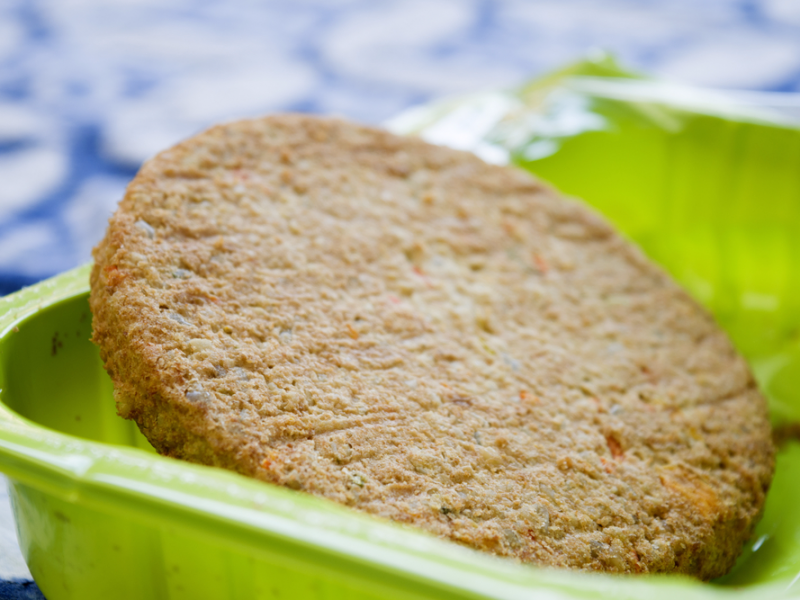 Foto: Be sure to check the ingredients.sourceSalvomassara/Shutterstock
Foto: Be sure to check the ingredients.sourceSalvomassara/Shutterstock
Some people might mistakenly assume the word “veggie burger” is a shorthand for “vegetable burger.” This may lead them to believe the meal is made with vegetables, and therefore, packed with nutrients.But according to Bonnie Taub-Dix, a registered dietitian, this is not always the case.Taub-Dix told INSIDER, “Not all veggie burgers are alike. Some are made with plant protein (like pea protein, tofu, beans) while others are made with fillers and grains and may not contain much protein at all.”These fillers can be as innocent as quinoa, an actual food, to strange things you’ve never heard of, like methylcellulose, maltodextrin, or vague descriptions like caramel color and hydrolyzed yeast extract. None of these are things you’d find growing in your garden.
And while not all filler ingredients are bad, if there's a lot of them in your burger, it probably isn't filled with as many nutrients as you think.
Although veggie burgers are presented as a meat alternative, they don't always offer comparable amounts of protein Foto: Look for burgers made with protein-rich foods.sourceShutterstock
Foto: Look for burgers made with protein-rich foods.sourceShutterstock
When deciding between ordering the chicken sandwich and veggie burger, you may want to check how much protein the dish offers you.According to Mayo Clinic, for a person following a 2,000 calorie diet, they should aim to consume 50 grams of protein each day.This can be challenge with some veggie burgers, said Taub-Dix.She told INSIDER, "As a frame of reference, there's about 7 grams of protein in one ounce of [meat] protein, so if your veggie burger has around 4 grams of protein - that's like eating only about a half an ounce of chicken. "
In addition to being an essential part of our diet, consuming protein also helps us to feel satiated. Taub-Dix said that vegetarians and vegans should really pay attention to this value, especially since they're likely relying on the meatless patty to be a major source of their protein intake.
When looking for a meatless burger, it's best to go for ones that are made with protein-rich plant foods, like beans, nuts, and soy. Taub-Dix recommends Amy's All American Veggie Burger, which packs a whopping 28 grams of protein thanks to its strong walnut base.
High sodium levels can make an otherwise nutritious meatless meal quite unhealthy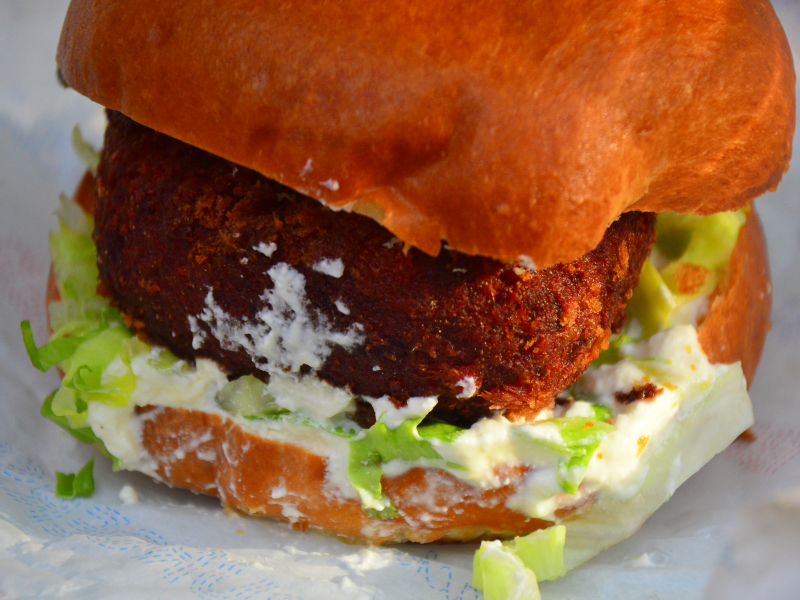 Foto: Pay attention to sodium levels.sourceFlickr/Ben Sutherland
Foto: Pay attention to sodium levels.sourceFlickr/Ben Sutherland
Although some meatless patties can easily pass the protein test, an area where they sometimes struggle to compete with meat ones is staying in a healthy sodium range.The daily recommended sodium intake is 2,300 mg per person, according to the US Food and Drug Administration.Taub-Dix said sodium level is something we should definitely pay attention to when purchasing a meatless burger.This is because extra sodium is often added to meatless products as a preservative and flavor enhancer. Beef in particular contains animal fat that gives it that bold flavor people crave, so mimicking that taste can be difficult and require extra sodium. Of course this isn't to say the other health advantages of meatless patties should be forgotten. They do offer people a tasty burger with way less (and sometimes zero) cholesterol and less fat overall.However it's crucial to remember that calling these meatless alternative "health foods" just because of a few perks may be a bit of a stretch.
Long lists of unrecognizable ingredients can indicate that a meatless burger is super processed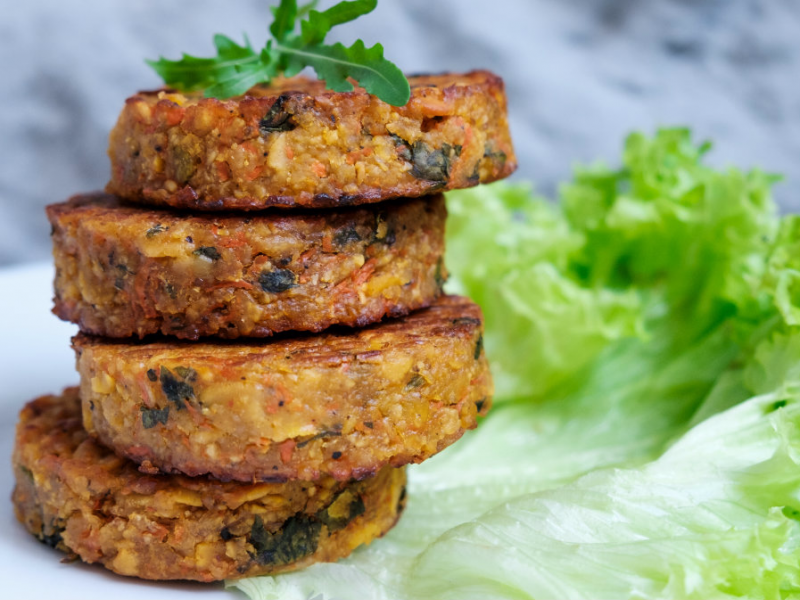 Foto: Be wary of long lists of ingredients.sourcePuzurin Mihail/ Shutterstock
Foto: Be wary of long lists of ingredients.sourcePuzurin Mihail/ Shutterstock
When it comes to food, Taub-Dix is big on reading nutrition labels, as noted in her book, "Read it Before You Eat It." She told INSIDER that when purchasing a meatless burger, it's important to look at not only what appears on the ingredient list, but where. This is mostly because longer lists can be a sign the product is highly processed rather than filled with whole, natural foods. "The list of ingredients on a food label displays items in descending order of weight. The shortest and most recognizable ingredient lists are worn by foods that are minimally processed and easiest to decode" she said on her website.
If you're looking to buy a pre-made meatless burger to cook at home, Taub-Dix recommends the Dr. Praeger patties, which are available at many US grocery stores. They offer several different patties made of ingredients everyone will recognize.
The patty isn't always what makes a veggie burger unhealthy
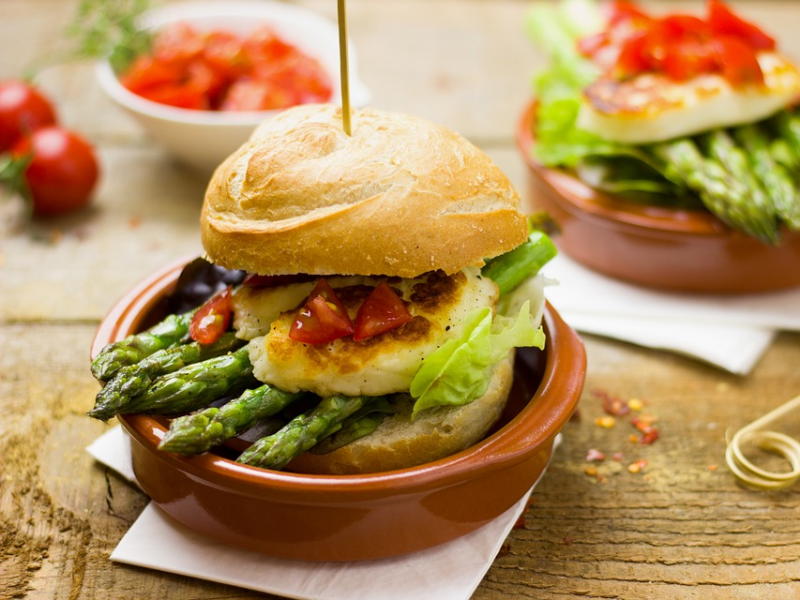
It's important to remember what often makes a meatless burger unhealthy isn't necessarily the patty, but the toppings. For instance some meatless burgers may contain more calories, and a lot of sodium solely because of the special sauces or cheeses that accompany them.
This is also the case with restaurant chicken sandwiches, turkey, and other regular burgers too. The best thing to do if you want to be health conscious and still enjoy a meatless burger is to take note of what's included with the meal. You can easily save a couple hundred calories and several grams of fat by ordering your sauces on the side because it allows you to control how much you're eating. Of course at the end of the day, a burger is still a burger. And just because it's made with slightly better ingredients, it doesn't mean should eat them every day.
Visit INSIDER's homepage for more.
